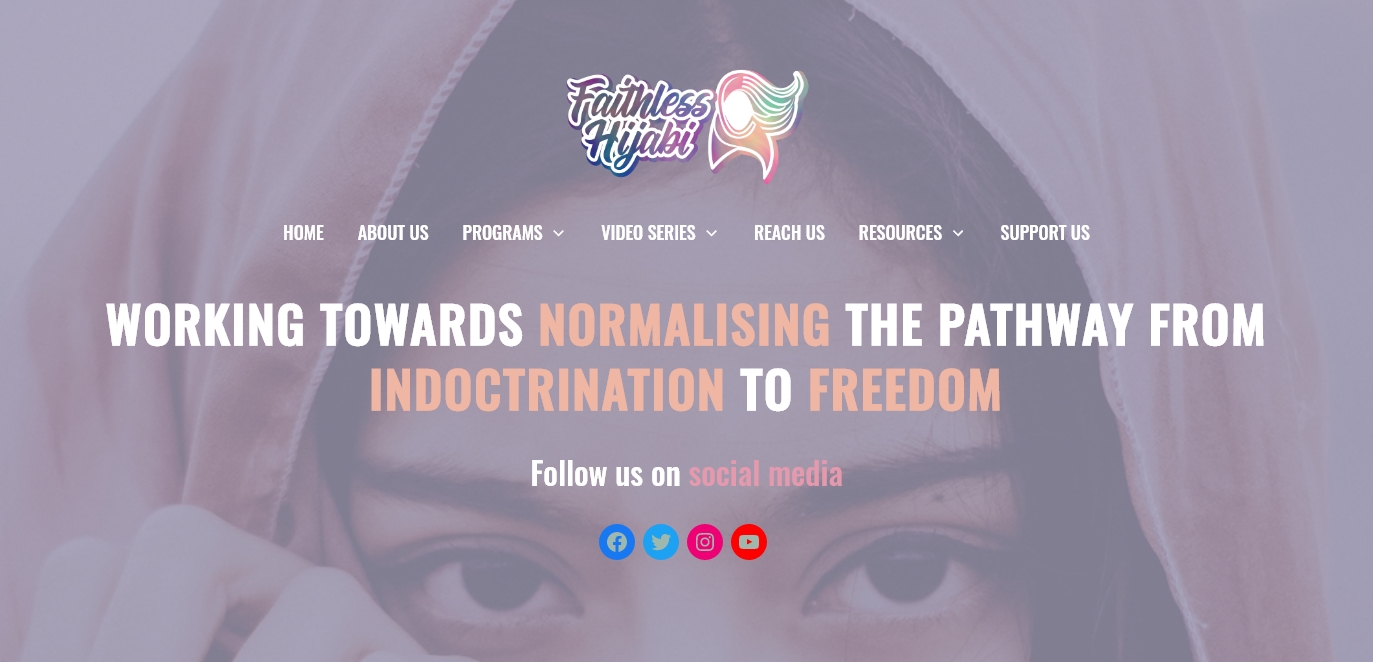Faithless Hijabi was established in 2018 and since 2020 is an Associate of Humanists International. In 2021, the team of Faithless Hijabi will provide free and professional psychological assistance to at least 22 apostates and humanists at risk in developing countries, helping them to cope with the mental health issues that arise during their journey of apostasy offering sessions in English and Arabic.
Background
Faithless Hijabi was founded in 2018 by a group of ex-Muslim women lead by Tanzanian-Australian activist Zara Kay. Since then, the organization has assisted hundreds of apostates (especially women) from all over the world in their apostasy journey. As it stands, women who leave the religion of Islam are often ostracised by their families, any form of dissent has the possibility of inciting violence. Faithless Hijabi is a space where vulnerable and endangered women garner support. It is a space for shared experiences, experiential guidance, and strength in unity.
About the project
The “Mental Health Program” aims to help 22 humanists at risk by offering 8 free sessions of therapy each, to work through their fragile mental health as changing identities and pressure and emotional abuse from religious families bring about.
Many of the people assisted by Faithless Hijabi are living a closeted life. While concealment affords escape from stigma and discrimination, it also creates a psychological toll. And even though disclosure alleviates the mental burden of concealment, it invites the stress of navigating a new public identity.
Emotional abuse is a form of manipulation used to maintain control in a relationship. This type of abuse may include verbal attacks, humiliation, intimidation, bullying, and isolation. It can cause deep emotional harm that may last for years. Some people are convinced their situation is hopeless, especially living in a Muslim Majority country. They may feel no one will believe them or hurt them, especially if they are from a marginalized community. Others may wish to avoid being public about their apostasy because of the stigma that comes with it and even more so if it threatens their lives. Reaching out for help can take a lot of bravery. But help is available.

Therapy provides a safe, non-judgmental space to come to terms with what is happening to the person and to navigate the safest steps forward. Even after the person leaves the religion, they may still have trauma from the abuse caused by families or just self guilt. There are many types of therapy that can help one recover. This program is open for both men and women. Since the inception of the program in August 2020, Faithless Hijabi assisted (or is still in the process of assisting) 37 people.

